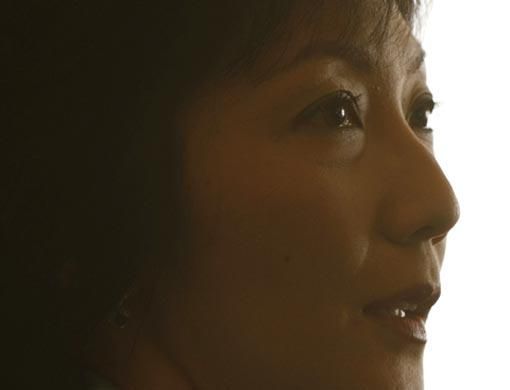Tokyo: A young woman cradles her baby boy, born from a surrogate mother, and describes how she stuffed fabric in her clothes to fake pregnancy so her neighbours would not know, a sign of the stigma surrounding surrogacy in Japan.
The woman's own mother bore the baby for her daughter, who was unable to bear children of her own because she had no uterus.
"The doctors said she should train for a profession, be a career woman and not think about marriage," the woman's mother, her face hidden, tells a TV programme on surrogacy.
"This made me sad. As a woman, I wanted her to have the same experience as me, to have a baby."
Japanese parents of surrogate children are beginning to break their silence amid a debate over surrogate births as Japan's government considers banning the practice.
Surrogate motherhood is currently prohibited for commercial purposes in Australia, Spain and China. It is allowed with restrictions in the United States, France and Germany.
Japanese obstetricians adopted a ban against surrogate births in 1983, but there is no binding law and some couples have had children through surrogate mothers with the help of a doctor in central Japan who is defying domestic medical circles.
Such births, along with a trend for couples to go abroad in search of surrogate mothers, have prompted the government to consider regulations.
Opposition to a ban is strong and it is expected to take years before legislation is enacted.
TV celebrity Aki Mukai, who set off a media frenzy when she and her wrestler husband had twin boys through an American surrogate mother in 2003, said imposing a ban might force would-be parents to go underground.
"The law has to be convincing, otherwise, there will be people who have babies secretly and that will lead to all sorts of tragedies," she said in an interview.
A panel of health, legal and ethics experts at the Science Council of Japan, which has debated the issue for more than a year at the request of the government, argues that surrogate births pose health risks to both surrogate mothers and children.
Legislation
The experts have also cited concerns about the possibility family members might be forced to take on the role by relatives.
"New legislation is needed and based on that legislation, it is desirable for surrogate conception to be banned in principle for now," the panel said this month in a draft report calling for doctors, agents and clients all to be punished for commercial surrogacy births.
But the experts also said surrogate births should be allowed in some exceptional cases and regulations could be changed in the future.
Difficult question
"To what extent can humans be allowed to intervene in the creation of a new life," asked Asahi newspaper in an editorial.
"This is a difficult question, but society must reach a consensus on the best possible options, keeping in mind the feelings of couples who are desperate to have children."
The Science Council report is non-binding so it will be up to lawmakers to submit a Bill for deliberation in parliament. Lawmakers' study groups have so far failed to reach any conclusions after clashes over possible guidelines.
"We need to take time for a thorough debate, though that doesn't mean the debate is something we can prolong," said Chinami Nishimura, a lawmaker of the main opposition Democratic Party, who chaired discussions within her party last year.
Nishimura said she was in favour of allowing surrogate births with restrictions. She worries though that women in Japan are increasingly under social pressure to bear children at a time when the government is concerned about a falling birth rate as couples delay marriage and opt for careers and carefree lifestyles.
TV celebrity Mukai said allowing surrogacy with restrictions could address the issues that worry academics, such as health risks for the surrogate mother and possible psychological effects when children find out they were born through surrogacy. "If the government can set guidelines, it could ensure the best safety of the surrogate mother," she said. "Communication can also reduce the psychological shock for the child."
A ban in Japan would at any rate be unlikely to prevent desperate couples from going abroad in search of a surrogate.
"The science is there, so it's absurd to deny that option to couples in Japan, especially when it's available abroad," said Yahiro Netsu, the obstetrician who has helped eight couples have children through surrogacy. "All I ask for is for a society in which people can live complementing each others' weaknesses and consoling each other."
Have your say
What do you think of surrogate mothers? Is it an acceptable or disturbing idea? Tell us at letter2editor@gulfnews.com













